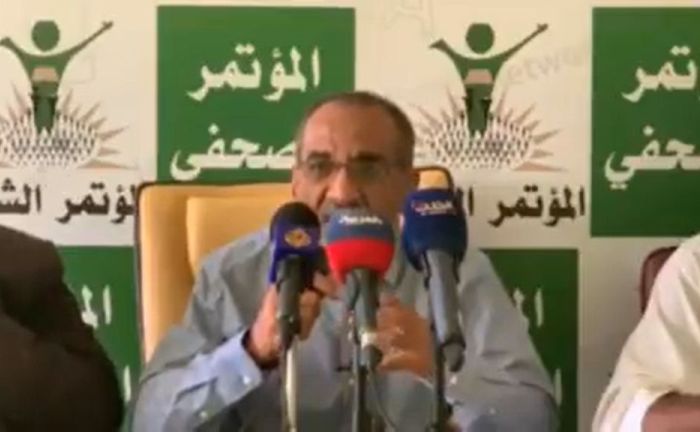PCP’s Shura body rejects Sudanese lawyers draft constitution
September 18, 2022 (KHARTOUM) – The Popular Congress Party (PCP)’s Shura Council rejected on Sunday the draft transitional constitution proposed by the Sudanese Bar Association, which was signed by the party’s acting secretariat.
“We reject this document, which does not reflect our faith, our conscience or the history of our country, said the Shura Council.
“Also, we call on all patriotic parties to condemn and disavow the draft constitution of foreign embassies and to work together to confront all external interference and attempts at exclusion,” added the statement.
The parliament of the Islamist group went further distanced itself from some PCP senior members who signed the contested draft constitution after participating in its preparatory meetings.
Their endorsement is an explicit violation of the religious values and the founding preamble of the party that advocate the values of Islam. Also, it violates it’s the party’s statute, which tasks the Shura Council with public policy and alliances.
Since last June, Shura body is in open conflict with the steering secretariat when they dismissed the political secretary and two other members. But the committee rejected their decision, saying they have the authority to take such a decision.
The party’s secretary general Ali al-Haj is in jail for his participation in the 1989 coup that brought the Islamists to power.
The Sudanese Islamists of all tendencies are mobilizing to support the military coup and at the same time, they put pressure on al-Burhan to preserve the Islamic legislations.
The draft constitution of the Sudanese lawyers, which is close to the former ruling coalition Forces for Freedom and Change (FFC), calls for a civilian government to achieve democratic reforms.
The Sudanese Islamists consider the eviction of the military component from the democratic reforms means the establishment of a secular state and eventually the repeal of laws and acts imposed since the Nimirri regime and consolidated by al-Bashir.
The position of the Shura Council reflects the rift among the Sudanese Islamists over the place of Islamic laws in the modern states. Some of them believe that they have to follow Turkish and Tunisian Islamists groups and support the secular state, while others reject the idea.
Sudanese Islamic scholars and the Broad Islamic Current, a fundamentalist group vowed to resist the draft transitional constitution of the Sudanese lawyers in two separate statements on September 16.
The scholars said they were preparing to launch a campaign to uncover the danger of the draft, adding that the haste of European countries to “praise it casts doubt about the provisions of the (proposed) constitution and its objectives.”
They further claimed that those who prepared the document sought to “eliminate the Islamic characteristics of the Sudanese society regarding ethics, family, and transactions,” they said before accusing the lawyers of consolidating the policy of exclusion and spreading hate speech and language.
For his part, Mohamed Ali al-Jazouli, a leading member of the Broad Islamic Current described the draft constitution as a “secular, racist, extremist project”, expressing the FFC vision but does not express the orientations of the majority of the people of Sudan.
(ST)

